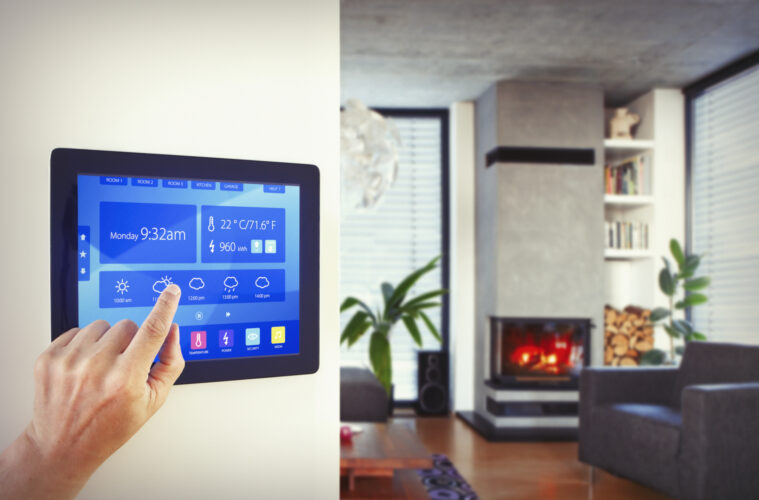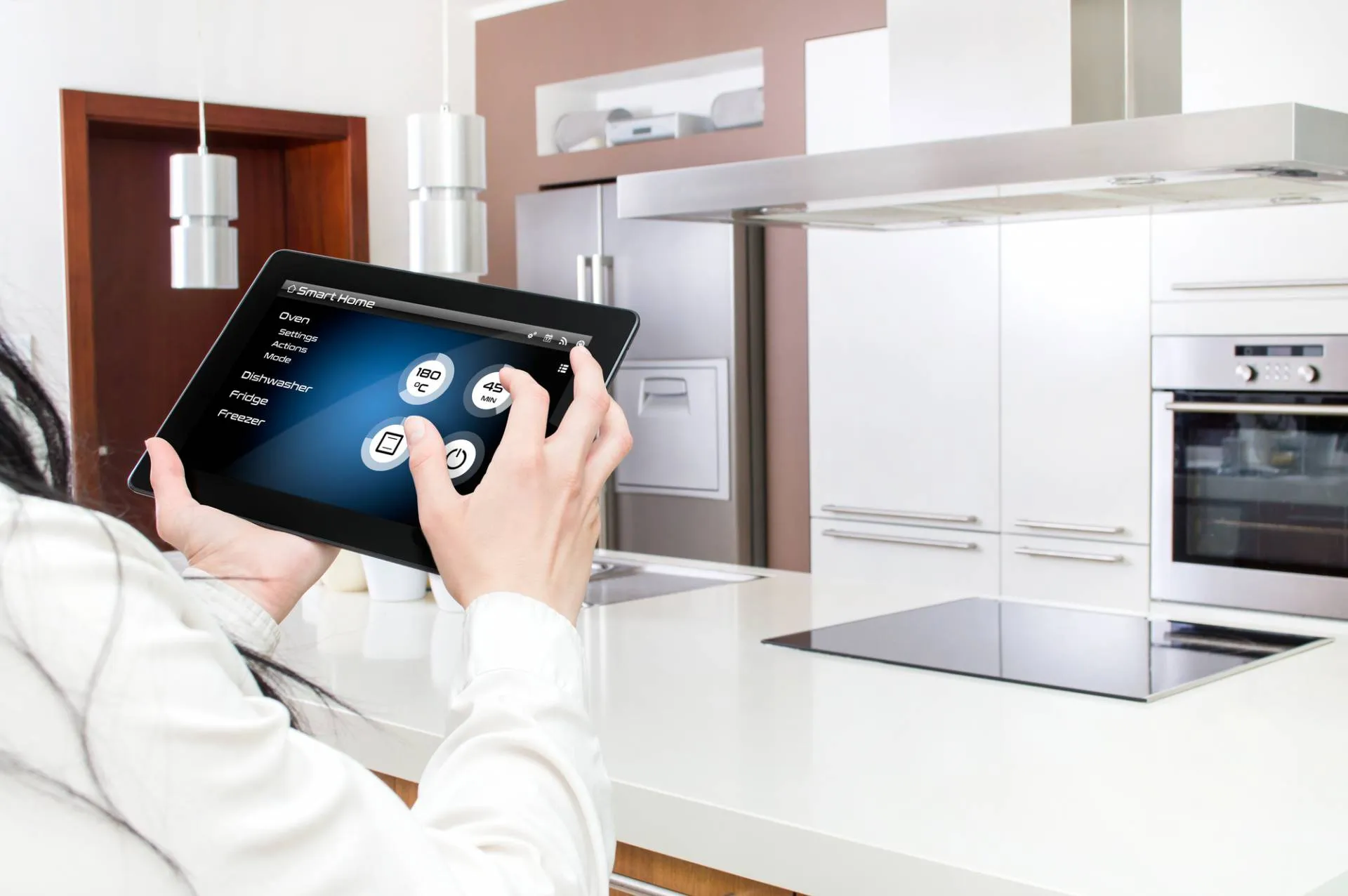As we step into the future, our homes are not just becoming smarter but also more energy-efficient. The advent of next-gen appliances is leading this transformation, offering both convenience and sustainability. In this exploration, we dive into the exciting world of energy-efficient appliances designed for the contemporary smart home, shedding light on how they help in reducing our carbon footprint without sacrificing functionality.
Understanding Energy Efficiency in Appliances
Before delving into the specifics, it’s crucial to grasp what makes an appliance energy-efficient. Energy efficiency in appliances refers to their ability to do more with less energy — that is, delivering higher productivity while consuming less power. This capability not only conserves energy but also significantly reduces utility bills and environmental impacts.
Energy Monitoring and Management Systems
The backbone of a truly energy-efficient smart home is its ability to monitor and manage energy usage. Today’s smart homes integrate systems that provide real-time insights into energy consumption and automate energy savings, from adjusting lighting and climate based on occupancy to powering down non-essential devices during peak hours. An essential tool for monitoring and optimizing the energy consumption of home appliances is a power analyzer. This device can offer valuable data on the energy efficiency of appliances, helping homeowners make informed decisions about their usage and adjustments needed to improve sustainability.
Lighting Up with LEDs
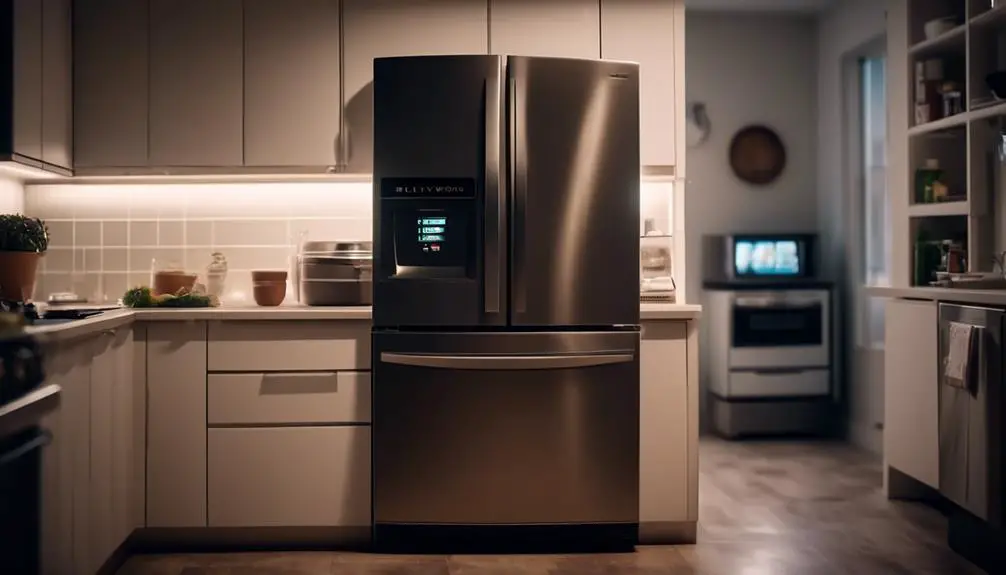
source: ecomasteryproject
LED lighting is perhaps one of the most straightforward yet profoundly effective shifts toward energy efficiency in homes. These lights use a fraction of the energy of traditional bulbs and have a much longer lifespan, greatly reducing both energy consumption and waste.
Smart Refrigeration
Modern refrigerators are marvels of energy efficiency, equipped with features like adaptive cooling, vacation modes, and energy-saving heaters to prevent condensation. Smart refrigeration takes it a step further by learning user habits to optimize cooling schedules, thereby ensuring food stays fresh longer with minimal energy use.
Sustainable Water Management Appliances
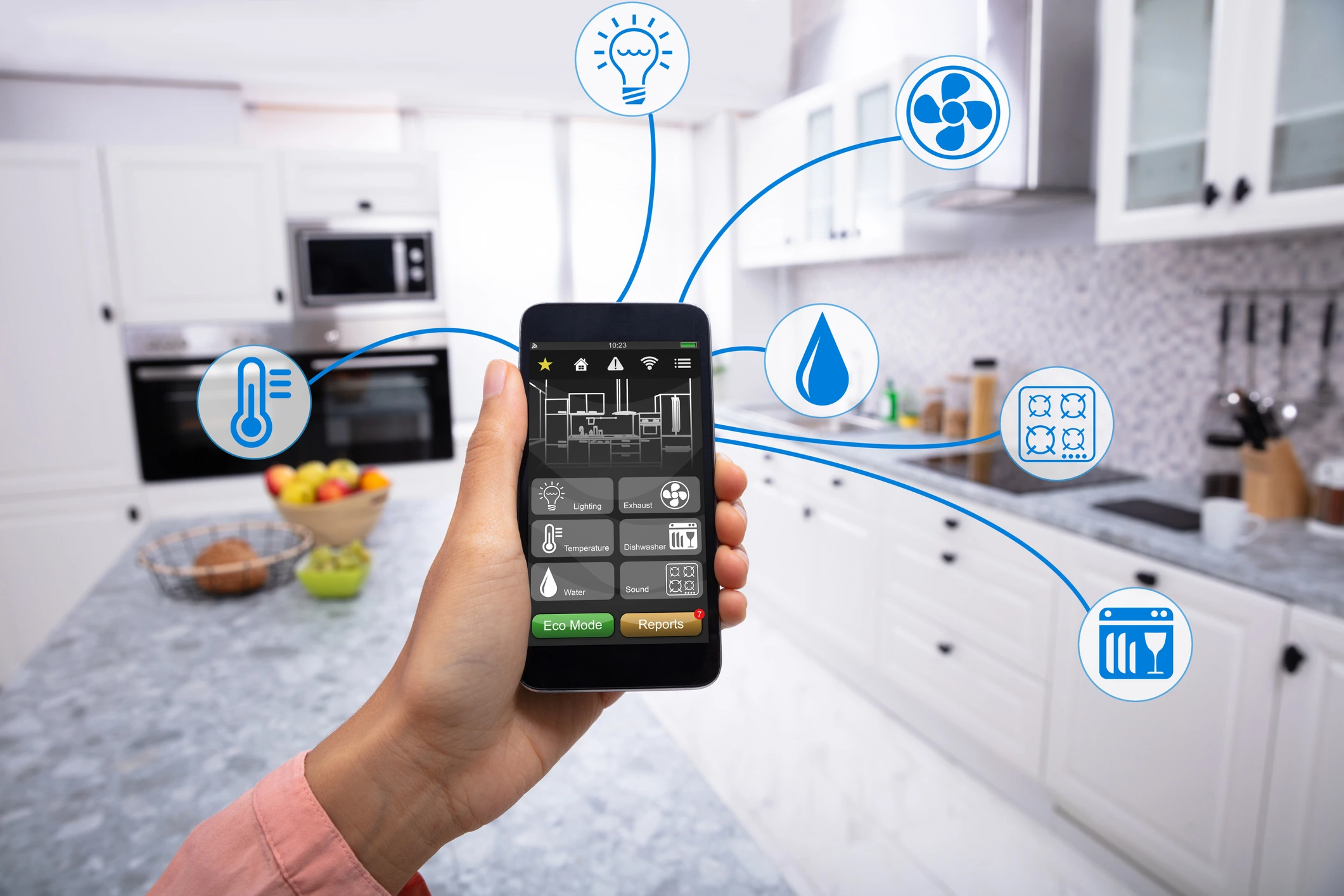
source: thebestsmart.homes
Advances in smart home technology extend to water management as well, with devices like intelligent irrigation systems and eco-friendly dishwashers and laundry machines. These smart appliances minimize water use while ensuring efficiency, contributing significantly to the conservation of this vital resource.
Revolutionary Washing Machines
The latest washing machines have undergone a radical transformation in energy efficiency. They now offer features like load sensing, which adjusts water consumption based on the load size, and steam cleaning that penetrates fabrics more efficiently, allowing lower temperature washes that save energy.
The Role of AI in Energy Efficiency
Artificial intelligence plays a pivotal role in enhancing the energy efficiency of smart homes. AI-driven algorithms can intelligently analyze energy consumption patterns, predict peak demand times, and manage appliance use to reduce energy waste. This not only makes the home more energy-efficient but also aids in prolonging the lifespan of appliances by avoiding unnecessary stress and usage.
Efficient Cooking with Smart Kitchen Appliances
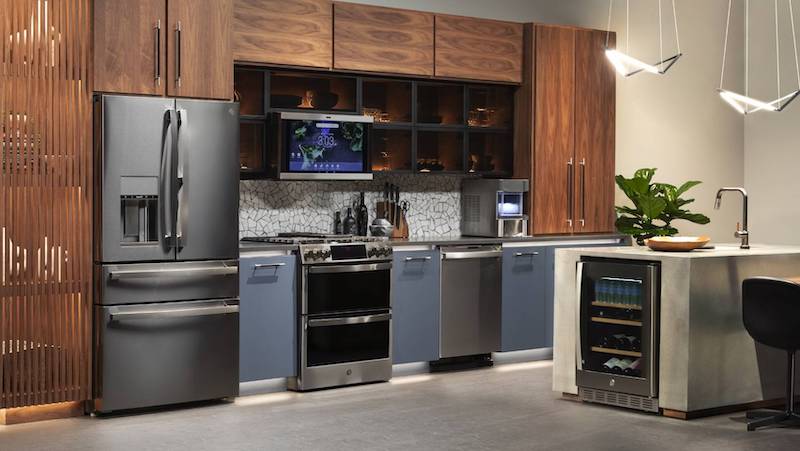
source: roboticsandautomationnews
Smart kitchens are revolutionizing cooking with appliances that ensure energy efficiency without compromising on culinary results. Induction cooktops, for instance, utilize magnetic fields to heat cookware directly, significantly reducing heat loss. Smart ovens adjust cooking times and temperatures based on the dish, optimizing energy use while guaranteeing perfect outcomes.
Looking Towards Zero-Energy Homes
The ultimate goal of energy-efficient appliance technology is to enable homes to produce as much energy as they consume, known as zero-energy homes. Incorporating solar panels, wind turbines, and other renewable energy sources along with the efficiency of smart appliances and systems, these homes represent the pinnacle of energy independence and sustainability.
To achieve this level of performance, builders tend to employ superior building science, integrating advanced insulation, high-performance windows, and efficient HVAC systems to minimize energy demand from the outset. This meticulous attention to detail can ensure a tightly sealed, well-ventilated envelope, leading to exceptional indoor air quality and significantly lower utility bills. Such expertly designed residences, often referred to as Zero Energy Ready Homes, prioritize durability and long-term cost savings, making them a smart investment for environmentally conscious homeowners.
Heating and Cooling Smartly
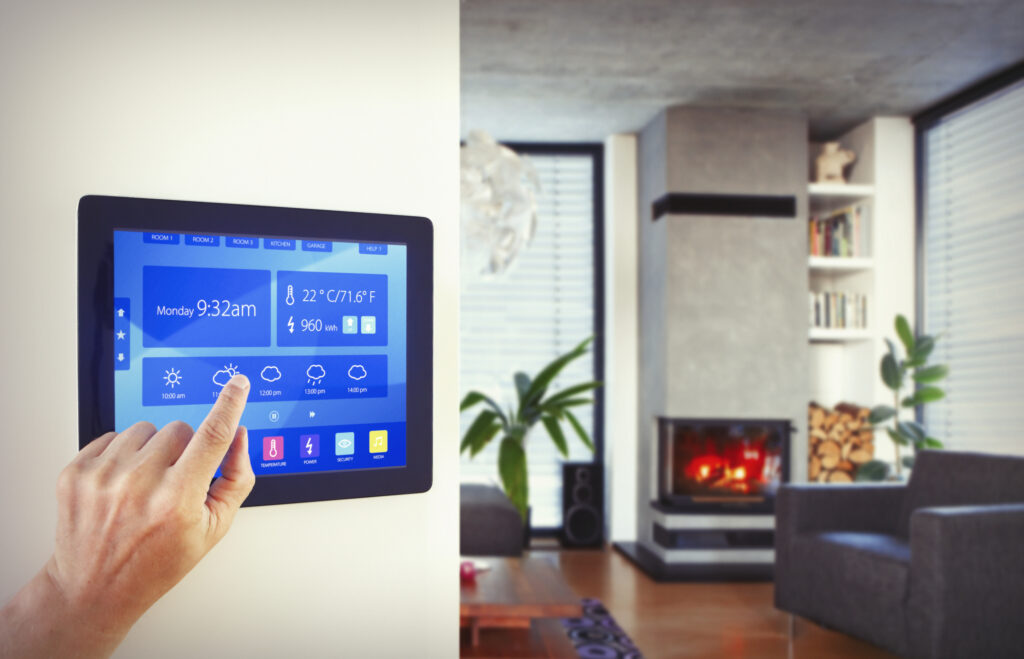
source: detmersons
Heating and cooling systems account for a significant portion of household energy consumption. Next-gen smart thermostats and HVAC systems offer precision control over home climates, learning from your habits to provide comfort efficiently. Moreover, technological innovations like geothermal heat pumps present an eco-friendly alternative for temperature regulation, utilizing the earth’s constant temperature to heat or cool homes efficiently.
Wrap-Up
The journey towards creating more sustainable living spaces is an ongoing process, and the implementation of next-gen energy-efficient appliances is a giant leap in the right direction. These innovations are not just about saving energy; they’re about rethinking how our homes operate, making them smarter, more sustainable, and ultimately, more in harmony with our planet. As we continue to innovate and adopt these technologies, we move closer to a future where smart homes pave the way for a greener, more energy-efficient world.

